
Copper benefits are a must-know for plant lovers! Today, we’re diving into the wonderful world of this essential nutrient in gardening. If you’re a plant lover, you’ve probably noticed the sleek, stylish appeal of copper tools and decorations in gardens everywhere. But there’s more to copper than just looks – it’s a fantastic material that brings a host of benefits to your garden.
Copper has been a favorite for centuries, not just for its timeless elegance but for its incredible durability and unique properties. The benefits of copper in gardening are numerous. Its antimicrobial properties help keep your plants healthy by naturally fighting off bacteria and fungi. Copper’s durability means it can withstand the elements, making it a long-lasting choice for your garden tools and decorations.
Disclosure: Hey there, plant lover!
Please be aware that this post may contain affiliate links. If you click on these links and make a purchase, I may earn a commission at no additional cost to you. Thank you for your support!
Table of Contents
.

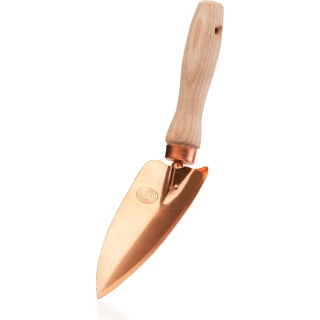
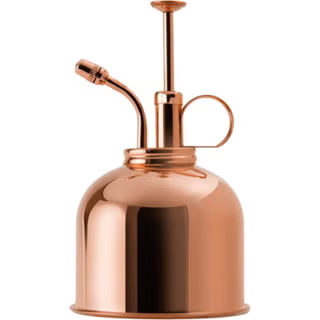
Credit:Bloomling
So, whether you’re looking to add a touch of sophistication to your garden or seeking a material that offers practical advantages, copper is an excellent choice. Let’s explore how you can incorporate this remarkable metal into your gardening routine!
2. The Aesthetic Appeal of Copper: Adding Elegance to Your Garden
Let’s talk about one of the most obvious and delightful benefits of copper in the garden: its stunning visual appeal! Copper has a unique, warm reddish-brown color that can instantly elevate the look of any garden. Whether you have a modern, minimalist design or a cozy, Boho vibe, copper can seamlessly blend in and add a touch of elegance.
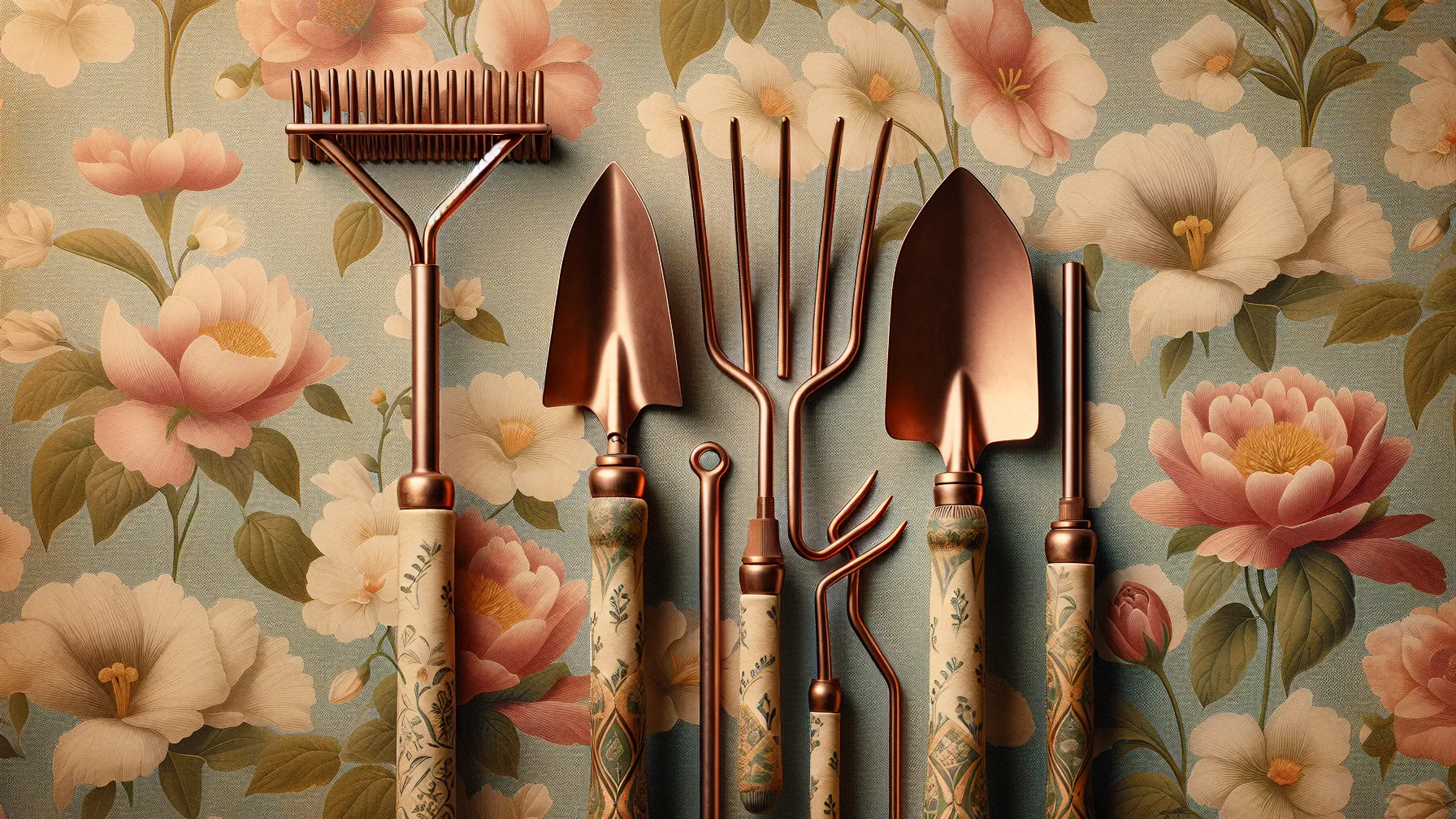
Imagine a beautiful copper watering pot catching the sunlight, or a set of copper planters lining your garden path. The rich, earthy tones of copper can create a warm and inviting atmosphere, making your garden a true haven. Plus, as copper ages, it develops a natural patina that adds character and charm to your garden tools and decorations.
Take a look at some stunning copper garden tools and planters. From intricate watering cans to elegant planters, these items not only look fantastic but also serve practical purposes. Imagine a copper watering can with its classic, rustic design or a copper planter that adds a touch of sophistication to your outdoor space
Copper Watering Pot: A sleek and stylish watering pot that not only looks great but also helps keep your plants healthy.
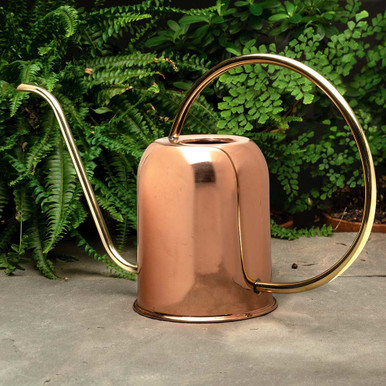
Copper Planters: Check out these lovely copper Window Planters! They have a gorgeous, hand-hammered finish and come in two sizes. They’re not only beautiful but also great for plant health, thanks to copper’s special properties.
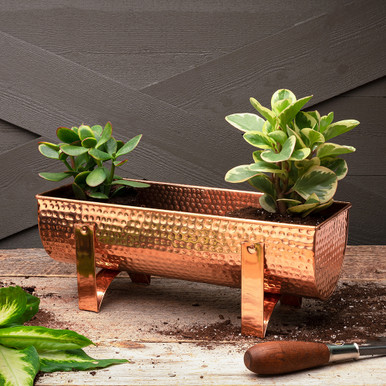
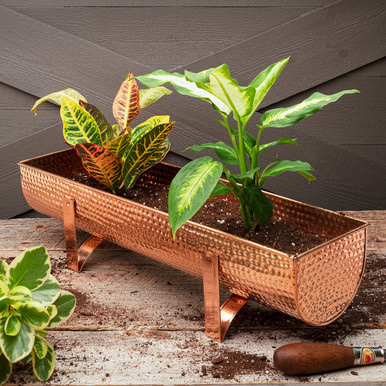
Copper Garden Markers: Add a touch of sophistication to your garden with these elegant copper markers. They’re perfect for labeling your plants and adding a decorative element.
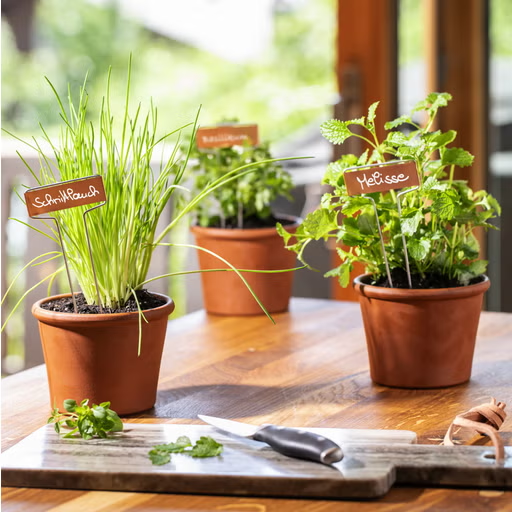
Copper Seed Starting Tray: Ready to get growing? Start your seeds indoors now and enjoy a longer, more productive season! This Copper Seed Starting Trays provides the perfect cozy home for your seedlings while they get a jump on spring.

By incorporating copper into your garden, you’re not just adding functionality—you’re also creating a space that’s visually stunning and uniquely yours. So, why not embrace the beauty of copper and let it transform your garden into a work of art?
3. Why Choose a Copper Watering Pot?
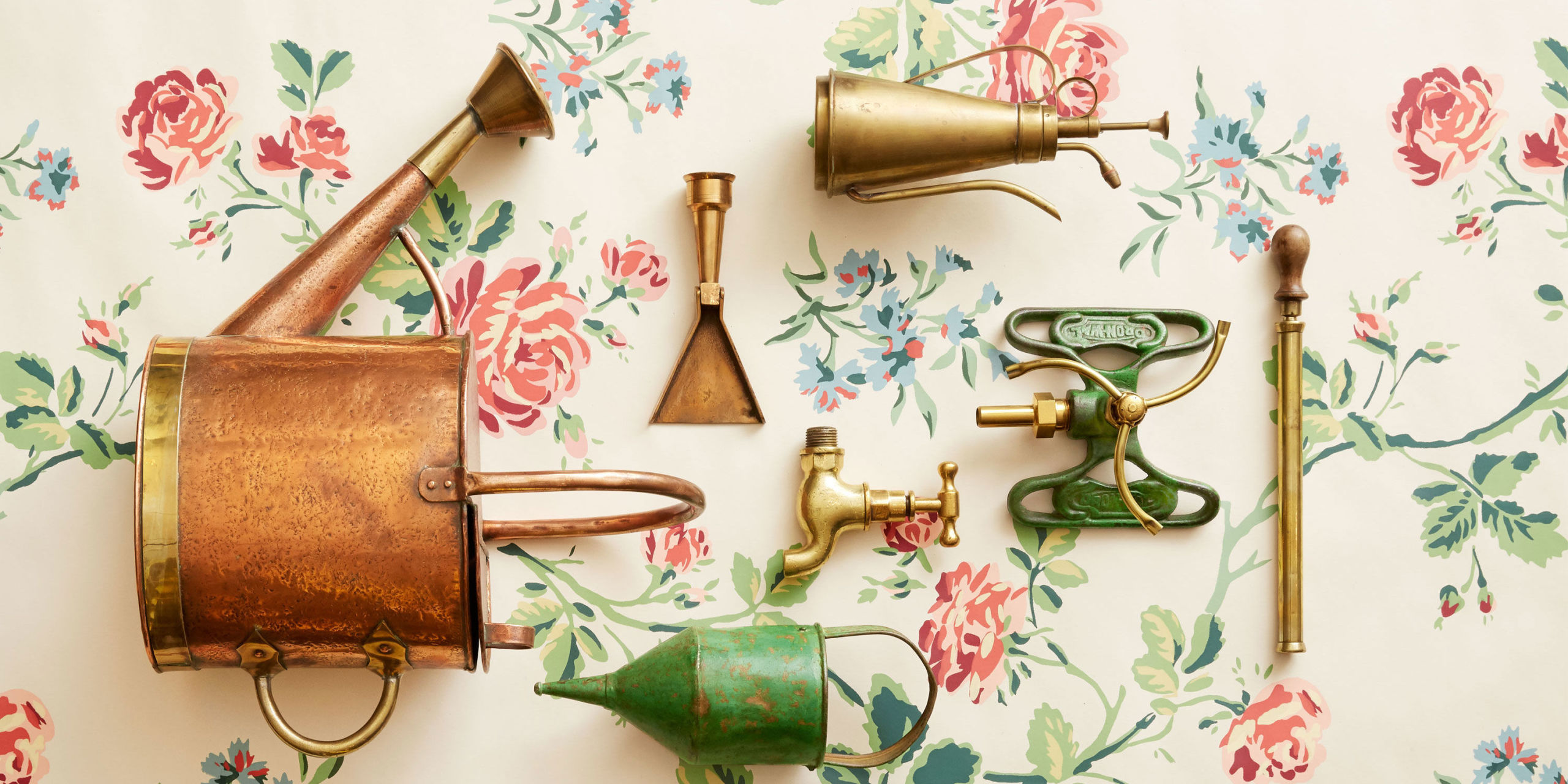
These pots are not just about looks; they bring a host of benefits that can enhance your gardening experience.
Preventing Algae and Bacteria
One of the standout benefits of copper watering pots is their natural antimicrobial properties. Copper is known to inhibit the growth of bacteria and algae. This means that your watering pot is less likely to harbor harmful microorganisms, ensuring that the water you use to water your plants is clean and safe.
Safe Usage Tips
While copper watering pots offer many benefits, it’s important to use them safely to avoid any potential issues:
- Moderate Watering: Avoid overfilling the pot. Excess water can lead to increased leaching of copper into the soil, which can be harmful if the soil already has adequate copper levels.
- Regular Cleaning: Clean the pot regularly to prevent buildup of minerals or contaminants that might affect the water quality.
- Monitor Plant Health: Keep an eye on your plants for any signs of copper toxicity, such as leaf chlorosis or necrosis. If you notice any unusual symptoms, reduce the use of the copper watering pot.
- Soil Testing: Regularly test the soil to check for copper levels. If the soil is already high in copper, it’s best to use the copper watering pot sparingly or avoid it altogether.
By following these tips, you can enjoy the stylish and functional benefits of copper watering pots while keeping your garden healthy and thriving.
So, why not add a copper watering pot to your garden today? Not only will it look fantastic, but it will also help keep your plants happy and healthy!
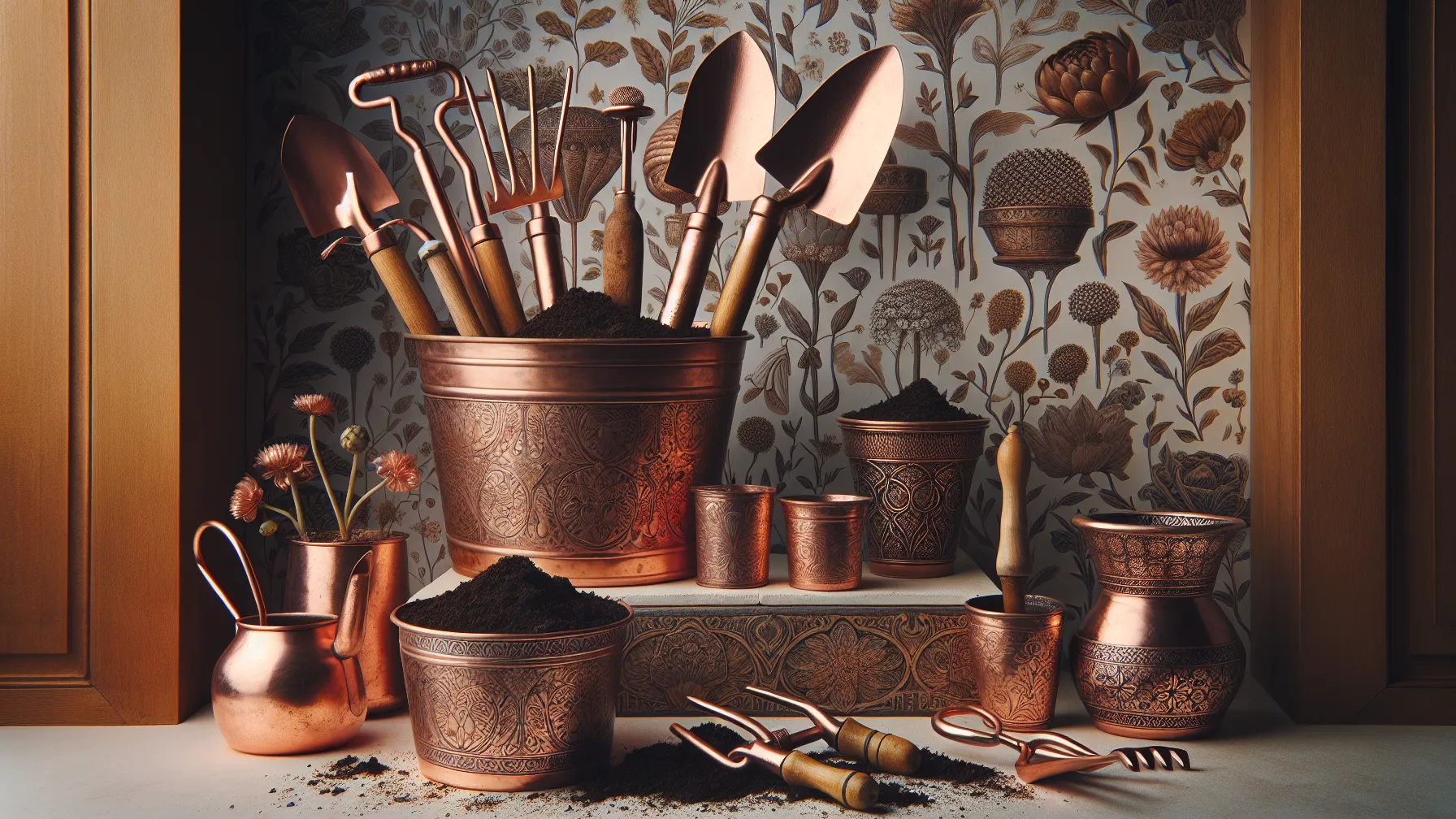
4. Copper Planters: Pros and Cons
Copper planters are a fascinating choice for gardeners looking to add a touch of elegance and functionality to their garden. However, like any gardening tool, they come with their own set of benefits and drawbacks. Let’s dive into the pros and cons of using copper planters and explore how to use them safely.
The Benefits of Copper Planters
- Durability: Copper is a highly durable metal that can withstand the elements. This means that your copper planters will last for many years, providing a long-term investment for your garden.
- Antimicrobial Properties: Copper has natural antimicrobial properties that can help keep your plants healthy by inhibiting the growth of bacteria and fungi. This can be particularly beneficial in preventing plant diseases.
- Aesthetic Appeal: Copper planters have a unique, reddish-brown color that can add a touch of sophistication and charm to your garden. Over time, they develop a patina that enhances their visual appeal.
The Drawbacks of Copper Planters
- Copper Toxicity: One of the main concerns with copper planters is the potential for copper toxicity. If the soil is already high in copper, using copper planters can lead to excessive copper levels, which can be harmful to plants.
- Leaching: Copper can leach into the soil over time, especially if the planters are not properly maintained. This can lead to increased copper levels in the soil, which might not be suitable for all plants.
Safe Usage Tips
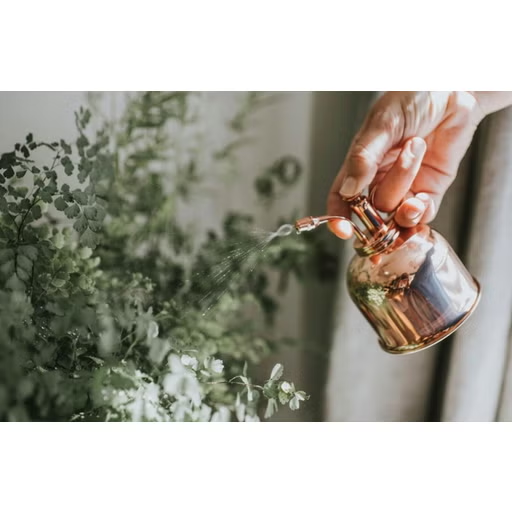
To enjoy the benefits of copper planters while minimizing the risks, here are some tips:
- Use Liners: Consider using liners in your copper planters to prevent direct contact between the soil and the copper. This can help reduce leaching and potential toxicity.
- Monitor Soil Health: Regularly test the soil to check for copper levels. If the soil is already high in copper, it’s best to use the copper planters sparingly or avoid them altogether.
- Choose the Right Plants: Some plants are more sensitive to copper than others. Research which plants are best suited for copper planters to avoid potential toxicity issues.
- Proper Maintenance: Clean the planters regularly to prevent buildup of minerals or contaminants that might affect the water quality.
By following these guidelines, you can enjoy the stylish and functional benefits of copper planters while keeping your garden healthy and thriving.
5. Copper Seeds Planters: A Chic Start for Your Seeds
Their warm, rustic tone complements a variety of garden styles, from modern minimalist to classic cottage. Plus, as they age, copper planters develop a beautiful patina, adding a layer of history and character to your green space.
A Natural Defense Against Mold and Bacteria
Now, onto the practical perks. Copper is known for its antimicrobial properties, which means it can help prevent the growth of mold and bacteria. This is especially beneficial for seedlings, which are often vulnerable to diseases. By using copper seed planters, you’re giving your plants a healthier start, reducing the risk of infections that can stunt their growth or even kill them.
Tips for Using Copper Seed Planters Effectively
To get the most out of your copper seed planters, here are a few friendly tips:
- Use Liners: While copper is great at keeping mold and bacteria at bay, it’s not the best idea to let your seeds or soil come into direct contact with it. Using biodegradable liners or planting trays inside your copper planters can protect your plants while still allowing you to enjoy the benefits of copper’s antimicrobial properties.
- Water Wisely: Copper planters can heat up quickly in the sun, which might not be ideal for delicate seedlings. Make sure to water your plants regularly, especially on hot days, to keep the soil moist and cool.
- Placement Matters: Since copper planters can get quite warm, consider placing them in a spot that gets morning sun but is shaded during the hottest part of the day. This will help prevent your seedlings from getting scorched.
- Clean Regularly: To maintain their antimicrobial properties and aesthetic appeal, give your copper planters a gentle clean with a soft cloth and mild soap. Avoid harsh chemicals that can damage the copper.
- Rotate Crops: If you’re using your copper planters for more than one season, remember to rotate your crops. This helps prevent the buildup of any potential pathogens and keeps your soil healthy.
6. A Sustainable Choice for the Eco-Conscious Gardener
The Recyclability of Copper
One of the standout environmental benefits of copper is its recyclability. Copper is one of the most recycled materials in the world, and it can be recycled without losing any of its inherent properties. This means that copper seed planters, trellises, and other garden accessories can be reused and repurposed, reducing the need for new raw materials and minimizing waste.
Contributing to a Sustainable Garden
Incorporating copper into your garden can contribute to a more sustainable environment in several ways:

- Longevity: Copper is durable and can last for many years, even decades, with proper care. This longevity reduces the frequency of replacements, which in turn decreases the environmental impact associated with manufacturing new products.
- Natural Pest Deterrence: Copper’s antimicrobial properties not only protect plants from mold and bacteria but also act as a natural deterrent against pests like snails and slugs. This can reduce the need for chemical pesticides, promoting a healthier ecosystem in your garden.
- Energy Efficiency: The production of recycled copper requires significantly less energy compared to mining and processing new copper. By choosing recycled copper products, you’re supporting energy-efficient manufacturing practices.
Eco-Friendly Gardening Practices with Copper
Here are some eco-friendly gardening practices that incorporate copper:
- Copper Tape for Pest Control: Use copper tape around the edges of your garden beds or planters to create a barrier that deters slugs and snails. The copper reacts with the moisture on their bodies, creating a mild electric shock that discourages them from crossing.
- Copper Watering Cans: Opt for a copper watering can for a stylish and sustainable way to water your plants. Copper cans are not only attractive but also help prevent the growth of algae and bacteria in the water, thanks to copper’s natural properties.
- Copper Plant Supports: Use copper wires or rods as plant supports for climbing plants like beans or tomatoes. These supports not only look great but also provide a sturdy and long-lasting structure for your plants to grow on.
- Copper Compost Bins: Consider using a copper compost bin to turn your garden waste into nutrient-rich compost. The copper can help prevent the growth of harmful bacteria and mold in the compost, ensuring a healthy end product for your garden.
In conclusion, copper is a sustainable choice for gardeners who are mindful of their environmental impact. Its recyclability, durability, and natural pest-deterring properties make it an excellent material for creating a more eco-friendly garden. By incorporating copper into your gardening practices, you’re not only enhancing the beauty of your garden but also contributing to a healthier planet.
Happy sustainable gardening!




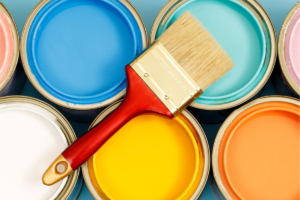
Pingback: Garden in Style: 7 Gorgeous Garden Tools to Elevate Your Boho Space - Boho Decor Living